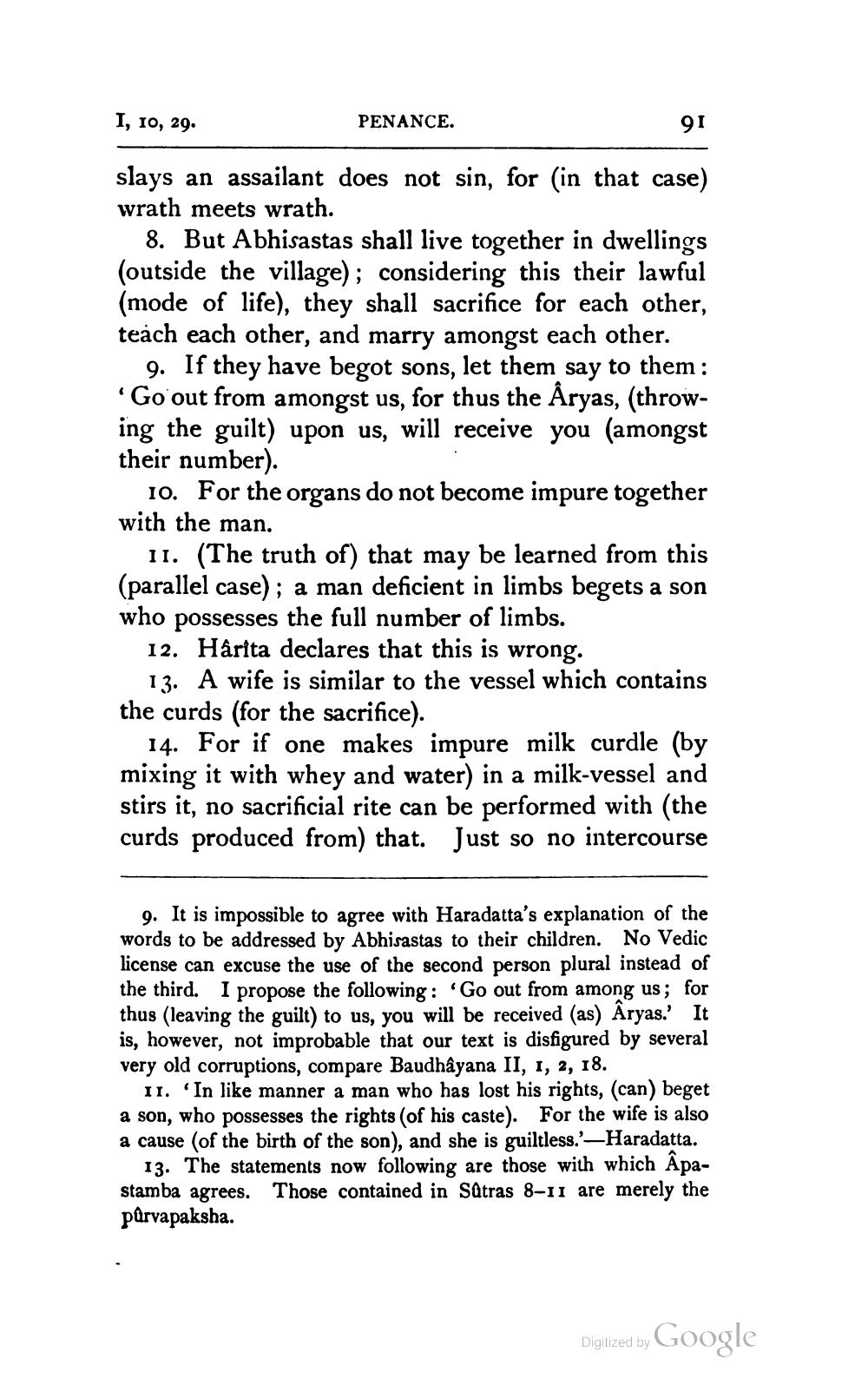________________
I, 10, 29.
PENANCE.
slays an assailant does not sin, for (in that case) wrath meets wrath.
8. But Abhisastas shall live together in dwellings (outside the village); considering this their lawful (mode of life), they shall sacrifice for each other, teach each other, and marry amongst each other.
9. If they have begot sons, let them say to them: 'Go out from amongst us, for thus the Aryas, (throwing the guilt) upon us, will receive you (amongst their number).
10. For the organs do not become impure together with the man.
11. (The truth of) that may be learned from this (parallel case); a man deficient in limbs begets a son who possesses the full number of limbs.
12. Hârita declares that this is wrong.
13. A wife is similar to the vessel which contains the curds (for the sacrifice).
14. For if one makes impure milk curdle (by mixing it with whey and water) in a milk-vessel and stirs it, no sacrificial rite can be performed with (the curds produced from) that. Just so no intercourse
9. It is impossible to agree with Haradatta's explanation of the words to be addressed by Abhisastas to their children. No Vedic license can excuse the use of the second person plural instead of the third. I propose the following: 'Go out from among us; for thus (leaving the guilt) to us, you will be received (as) Aryas.' It is, however, not improbable that our text is disfigured by several very old corruptions, compare Baudhayana II, 1, 2, 18.
11. In like manner a man who has lost his rights, (can) beget a son, who possesses the rights (of his caste). For the wife is also a cause (of the birth of the son), and she is guiltless.'-Haradatta.
13. The statements now following are those with which Apastamba agrees. Those contained in Sätras 8-11 are merely the purvapaksha.
Digjized by Google




